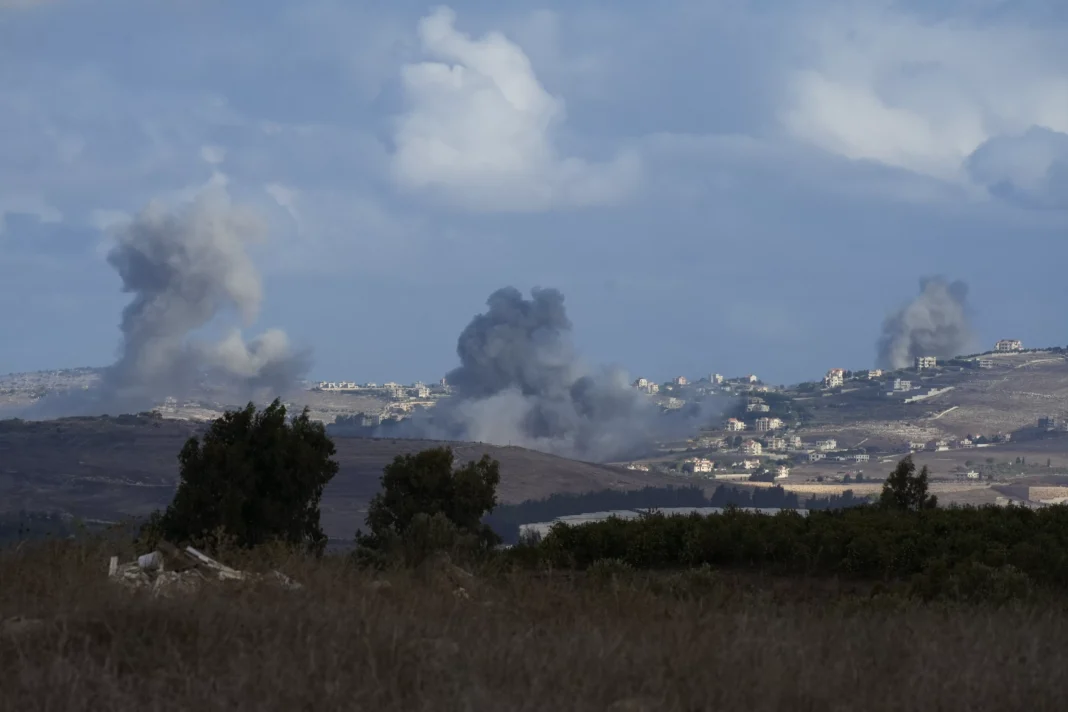The tension in the Middle East has reached a new high as Israel has vowed to retaliate against Iran’s recent ballistic missile attack. The region is braced for further escalation as both sides refuse to back down.
The situation began on Tuesday when Iran launched a series of ballistic missiles at two Iraqi military bases housing US troops. This was in retaliation for the US drone strike that killed top Iranian commander Qasem Soleimani last week. The attack resulted in no casualties, but it was a clear message from Iran that they will not stand for the killing of their top military leader.
Israel, a close ally of the US, has condemned the attack and has promised to respond with force. Israeli Prime Minister Benjamin Netanyahu stated, “We are standing beside the United States, right now, in a common battle against Iranian aggression.” This statement makes it clear that Israel is ready to take action against Iran.
The tension between Israel and Iran is not new. The two countries have been at odds for years, with Israel accusing Iran of supporting terrorist groups and developing nuclear weapons. Iran, on the other hand, sees Israel as a threat to its existence and has openly called for its destruction.
The recent events have only added fuel to the fire, and the region is now on edge, waiting for the next move from both sides. The fear is that this could escalate into a full-blown war, with devastating consequences for the entire region.
The international community has been quick to urge restraint and call for a de-escalation of tensions. UN Secretary-General Antonio Guterres has expressed his deep concern over the situation and has called for all parties to exercise maximum restraint.
The United States, meanwhile, has responded by imposing new sanctions on Iran, further escalating the already tense situation. President Trump has also warned Iran against any further attacks, stating that the US has “targeted 52 Iranian sites” that will be hit “very fast and very hard” if Iran retaliates.
The situation is further complicated by the involvement of other countries in the region. Saudi Arabia, a longtime rival of Iran, has condemned the attack and has expressed its support for the US. This adds another layer of tension to an already volatile situation.
The people living in the region are understandably anxious and worried about what the future holds. The thought of a war breaking out in their backyard is a terrifying prospect. Many are stocking up on supplies, preparing for the worst.
In the midst of all this chaos, there is a glimmer of hope. The Iraqi government has called for a peaceful resolution to the conflict and has urged all parties to exercise restraint. This is a crucial step in de-escalating the tension and avoiding a full-blown war.
It is also essential for the international community to come together and find a diplomatic solution to this crisis. The world cannot afford another war, especially in a region that is already plagued by conflict and instability.
As individuals, we must also do our part in promoting peace and understanding. We must not let hate and fear divide us. Instead, we should strive to build bridges and promote dialogue between different nations and cultures.
In conclusion, the recent events in the Middle East have put the region on edge and raised concerns about the possibility of a full-blown war. It is crucial for all parties involved to exercise restraint and find a peaceful resolution to this crisis. Let us all hope and pray for peace in the region and work towards a future where conflicts are resolved through dialogue and understanding.



